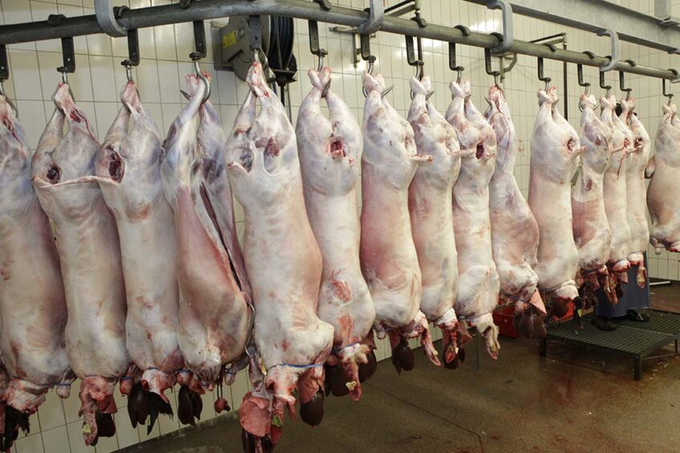November 28, 2025 | 10:52 GMT +7
November 28, 2025 | 10:52 GMT +7
Hotline: 0913.378.918
November 28, 2025 | 10:52 GMT +7
Hotline: 0913.378.918
This means the New Swine Inspection System (NSIS) will be upheld. However, testing of the system continues.

Foto: Henk Riswick
NSIS was established in late 2019 as a voluntary system that allows slaughter plant employees to be involved in pre- and post-slaughter sorting activities before federal inspection occurs. The system also affects processing line speeds.
7 groups, including the Center for Biological Diversity and Mercy for Animals challenged the final “rule” in the system. The groups alleged that under this initiative, he slaughter of most pigs in the country would take place at unlimited speeds “with very little federal oversight, posing serious risks to animal welfare, consumer health and safety, and the environment.”
However, the judge in the challenge case found that NSIS aligns with existing legislation, and that FSIS had previously addressed animal welfare concerns by responding to comments, providing reasonable explanations for decisions and addressing concerns related to training and humane handling.
When it was established in 2019, NSIS allowed slaughter plants to set line speeds based on each plant’s ability to maintain process control. About 2 years later, a court order in Minnesota put line speed limits in place, of 1,106 head per hour.
FSIS responded by inviting select plants to participate in trials where they could operate at an increased line speed, with independent analysis of the impact of these increased speeds on workers. These plants, located in various states, included Clemens Food Group, Quality Pork Processors and Tyson Fresh Meats.
However, the data were found to be insufficient to properly determine worker impact, and FSIS is commissioning a study that will independently generate “the necessary data for expert analysis.”
In late November, FSIS announced that trials at its chosen NSIS establishments will move forward for up to an additional 90 days while the study to collect data is being designed.
The National Pork Producers Council (NPPC) applauded this decision, saying: “Amidst a historically dire pork market, we thank agriculture secretary Vilsack for his actions to preserve harvest capacity, which provides market power to producers when selling hogs,” said NPPC president Scott Hays. “Without the extension, pork producers would incur additional losses of nearly $ 10/head in the 1st and 2nd quarters of 2024.”
“NPPC looks forward to continuing working with FSIS to make this programme permanent and increase NSIS adoption at additional packing plants.”
(PP)

(VAN) A new study reveals how the simultaneous effects of ocean acidification, salinity and loss of oxygen are making the world more fragile.

(VAN) Hopes are growing that the creation of the first 3D turkey gut model could be a turning point in the battle against the virulent blackhead disease.

(VAN) Tyson, America’s biggest meat supplier, plans to shutter one of its largest beef processing plants as the industry continues to struggle with low cattle supplies and political pressure from Washington.

(VAN) New FAO study shows how digital solutions are empowering farmers and fishers to prevent losses and build resilient agrifood systems.

(VAN) Brazil's COP30 presidency pushed through a compromise climate deal on Saturday that would boost finance for poor nations coping with global warming but that omitted any mention of the fossil fuels driving it.

(VAN) Poultry farmers in the UK have been warned that they could face one of the worst winters yet for bird flu.

(VAN) Prices of main-crop paddy have risen sharply, with jasmine rice hitting 16,100 baht per tonne — the highest level in years.